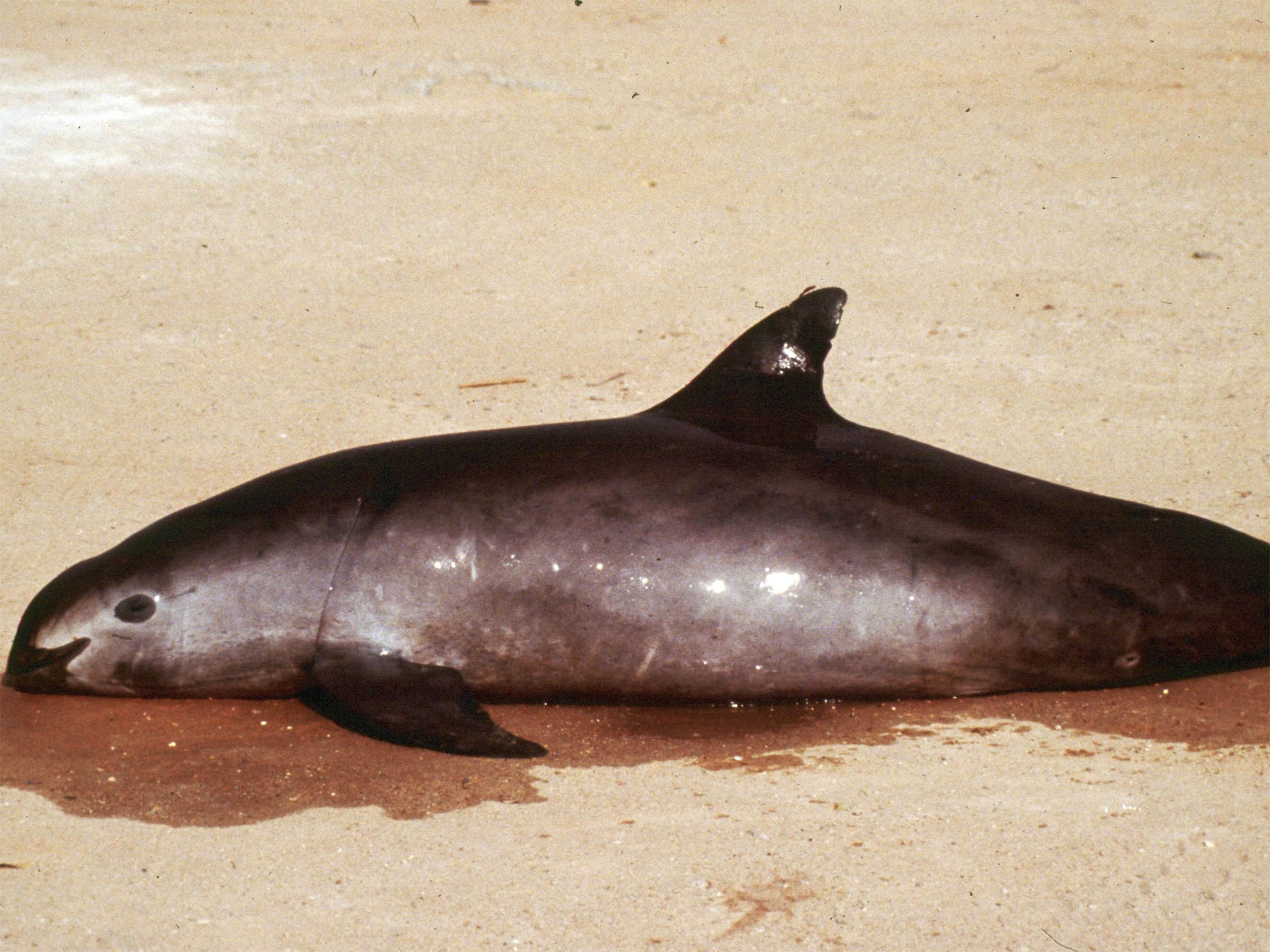Vaquita: One of the world's rarest animals could go extinct in months unless Mexico takes action, WWF warns
With as few as 30 left, people are being asked to sign a letter to Mexican president Enrique Peña Nieto, pleading with him to take urgent action

One of the world’s rarest animals could be extinct within months unless the president of Mexico takes action, conservation group WWF has warned.
There are believed to be fewer than 30 vaquitas – a type of porpoise compared to the panda because of the black circles around its eyes – left alive with the last ones found in Mexico's Gulf of California.
Some 90 per cent of the population has been lost in just six years, largely because they are caught in banned gillnets used to catch another endangered animal, the totoaba, for its swim bladders, which are used in traditional Chinese medicine.
However Mexico’s two-year ban on gillnets is set to expire at the end of this month, removing a vital safeguard.
Chris Gee, head of campaigns at WWF-UK, said: “Time is rapidly running out for the vaquita, we could tragically lose the ‘panda of the sea’ in a matter of months.
“We need the public’s help now to motivate the Mexican government to act to protect the species and the World Heritage site that provides home to the vaquita.
“The last hope for the species is the Mexican government immediately putting in place and properly enforcing a permanent ban on gillnets.
“This will also help safeguard this precious World Heritage site and the livelihoods of the local people who depend on it.”
The conservation group is asking people to sign a letter to the Mexican president, Enrique Peña Nieto, on its website at www.wwf.org.uk/vaquita.
“I encourage you to take immediate action to secure long-term protection of the Gulf of California World Heritage site, home of the last 30 vaquitas, as a positive legacy of your leadership for Mexicans and the world,” the letter says.
“The Upper Gulf of California is the only place where the vaquita lives. You have been a champion of the species in the past.
“To prevent its extinction, a permanent gillnet ban is urgently needed, together with the development of fishing alternatives and effective enforcement to halt illegal totoaba fishing and end its trade from Mexico to China.”
The plea came as an undercover investigation by the Elephant Action League (EAL) found totoaba swim bladders, known as maws, for sale at $20,000 (about £15,500) per kilogram, which is comparable to the price of gold or illicit drugs.
The illegal wildlife trade worldwide is thought to be worth about £15bn a year, making it the fourth largest international criminal trade after drugs, guns and human trafficking.
Animals in decline
Show all 8EAL’s executive director, Andrea Crosta, said: “Given the dire circumstances surrounding vaquitas and the issues associated with the totoaba swim bladder trade in Mexico, including possible corruption and involvement of drug cartels, it is vital to fully research, investigate, and map all aspects of the totoaba supply chain, including the players that need to be neutralized.”
She said EAL would make details of its ‘Operation Fake Gold’ investigation available to all the countries involved.
Subscribe to Independent Premium to bookmark this article
Want to bookmark your favourite articles and stories to read or reference later? Start your Independent Premium subscription today.

Join our commenting forum
Join thought-provoking conversations, follow other Independent readers and see their replies